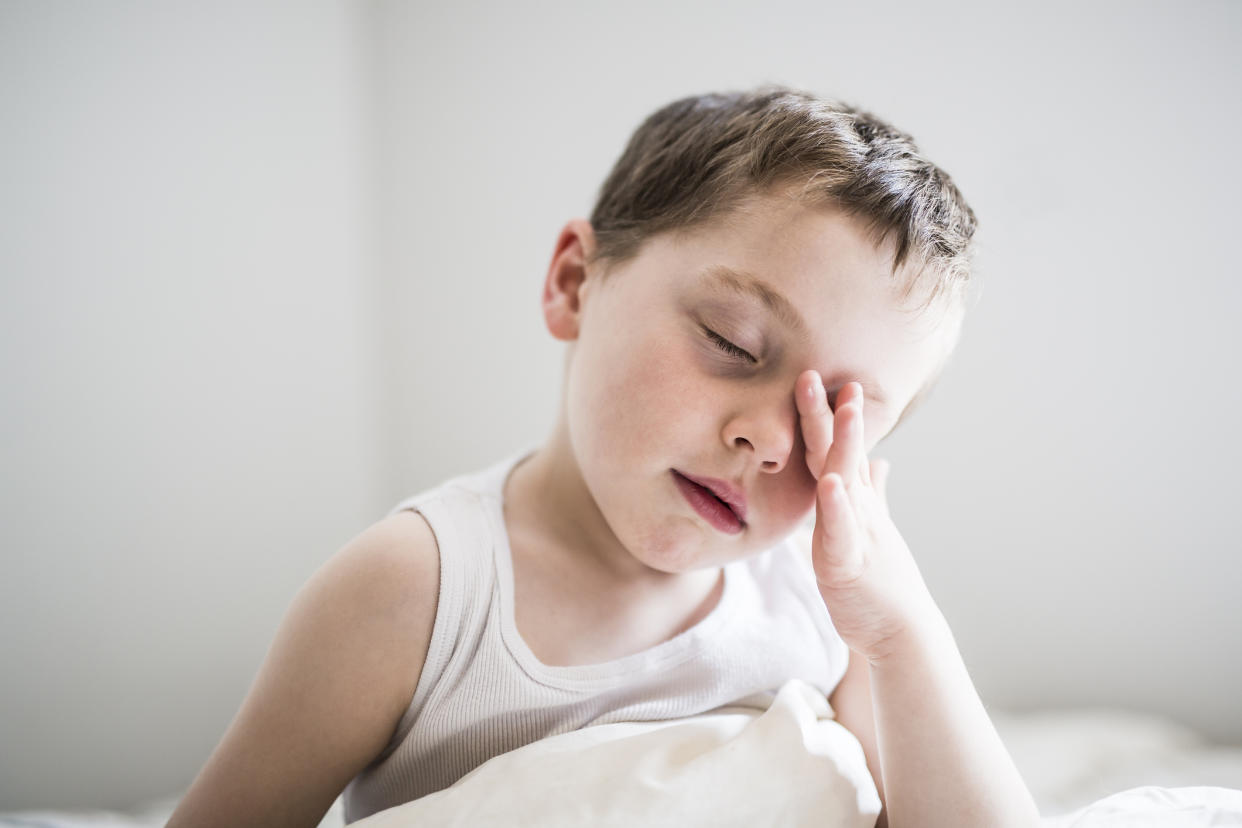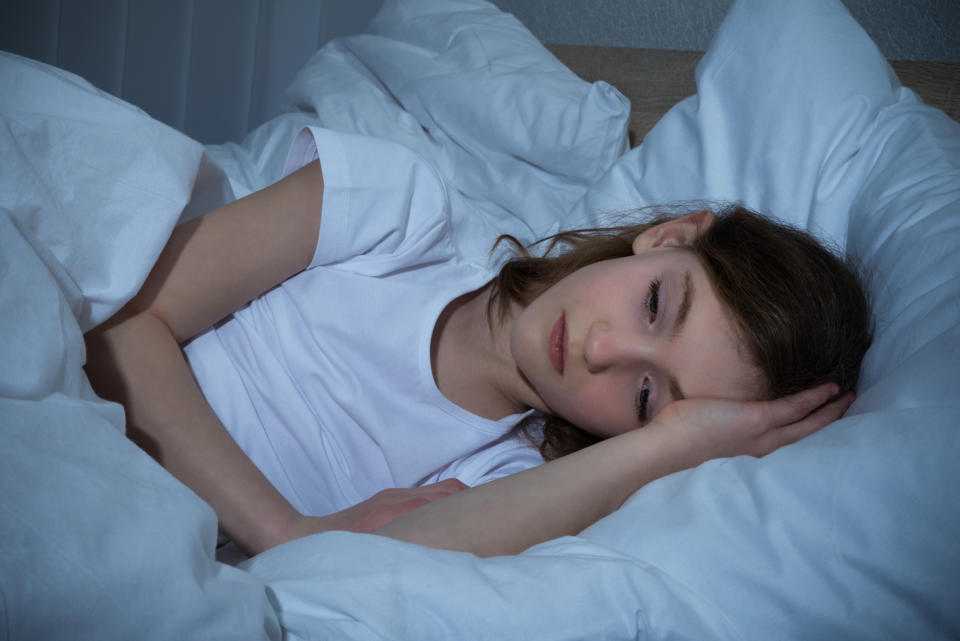How to help children sleep better during coronavirus lockdown

Wild dreams, 3am wake-ups and weary nights, the coronavirus pandemic seems to be playing havoc with our sleep.
But it’s not just adults who have joined the #wideawakeclub, lockdown is also having an impact on the snooze habits of children.
From pushing bedtime ever later, to creeping into their parents beds and the late-night pitter patter of tiny feet, children of all ages seem to be struggling to settle too.
So what’s causing the sleep schedules of the nation’s smalls to get so out of whack?
Read more: What to do if your child suddenly starts waking up in the night
According to Brendan Street, Professional Head of Emotional Wellbeing at Nuffield Health there are several reasons the current Covid-19 crisis is impacting children’s sleep.
For a start their routine is likely all out of kilter, which is having a knock on effect on circadian rhythms.
“Activities during daylight impact on our internal body clock, our circadian rhythm,” explains Street. “Once stuck indoors it is hard to get the external cues we all require to keep our body clock in rhythm, remind us that it is time to sleep or time to wake, and as such, you may find that your sleep pattern becomes more erratic.”
And children are even more susceptible to such changes.
Read more: Parent-approved indoor activities to keep children occupied during lockdown
Children taking less exercise could also be attributed to impacting kids snooze time.
“Less physical activity in the day is associated with it being harder to get to sleep, and your child's sleep quality may also be worse,” Street says.
Throw in a spike in screen time, as frazzled parents turn to tech in a bid to help juggle their own work with at-home childcare, and it isn’t surprising the ZZZs are slipping.
“There may understandably be an increase in screen time during the day due to the current pandemic,” explains Street.
“However, increased screen time introduces more light of a blue wavelength to your child at night which inhibits sleep.”
While the worry of coronavirus is keeping many grown-ups awake, its also easy to forget that many children are feeling anxious about the current situation too.
Read more: Parents need to be aware of 'separation anxiety' in children caused by coronavirus lockdown

The problem is a lack of sleep can have some pretty serious knock-on impacts on children’s health, both physical and mental.
“Sleep is incredibly important in the development of children's bodies and brains,” explains Street. “The Sleep Foundation advise children aged six to 13 need 9-11 hours of sleep to help their bodies to heal and repair appropriately.
“The Sleep Foundation also report that sleep problems and disorders are prevalent at this age, with poor or inadequate sleep resulting in mood swings, behavioural problems and cognitive problems which can impact their ability to learn,” he adds.
So what can parents do to switch up the sleep time?
Create time to unwind
After a frazzled day of homeschooling, it may be tempting to flop down on the sofa glass of sauvignon in hand, but it is important to try to spend some time relaxing with the kids before bedtime.
“This could be reading a book together, listening to relaxing music or having a bath,” suggests Street. “Try to avoid discussing or making any reference to COVID-19 for at least an hour before sleep so they go to sleep with a relaxed mind.”
Put pen to paper
Children may be feeling anxious about when they can return to school, or when they will be able to see their friends and family again, but getting their worries down on paper could help. “Asking children to put their thoughts and emotions into words can also help them to understand their feelings more clearly, and setting aside time to do so daily can help them learn new coping skills,” suggests Street.
Read more: How to talk to children about the coronavirus
Breathe their way to a better night’s sleep
According to Street when our bodies experience stress and anxiety our breathing becomes more rapid. Introducing simple deep breathing techniques to children can help them relax, especially if they are struggling to sleep.
“Practice this simple technique with them,” says Street. “Find a comfortable place for them to lie down, and ask them to breathe in deeply with their hands on their belly so they can feel it rise. Then ask them to hold their breath for 1 -2 seconds, before breathing out slowly while they feel their belly deflate. Encourage them to use this technique on their own if they are feeling stressed or worried.”
Keep their bed for bedtime
While we’re spending more time at home, children could be using their bed as a make-shift desk, game or zoom their friends. But it's important to make sure that children associate their bed with sleep. “Try to avoid letting them play or lie in bed throughout the day if they aren't napping,” says Street. “It is just as important to create a separation between working spaces and relaxing spaces for adults, as it is for children’s school work, and their relaxing spaces.”

Take a pre-bed screen detox
Bright lights, television, phones and other devices can all have a negative impact on children's sleep. “Light from electronic devices is thought to delay the release of melatonin, the hormone that is important for us to get to sleep, and can also disrupt our circadian rhythms,” explains Street. “Taking devices into the bedroom may mean children using them past their usual bedtime, eating into essential sleep time.” Street suggests setting clear limits and eliminating screen time at least an hour before bedtime.
Read more: Online classes and activities for children during the coronavirus outbreak
Try to stick to a routine
The switch from strict school-day schedules to more ‘relaxed’ homeschool timetables can prompt parents to become more lax about bedtime and wake-up calls. But it is important not to slip into ‘holiday mode’.
Vanessa Vance, nurse and sleep consultant from Parent Heroes tells Yahoo Lifestyle letting children get in the habit of staying up late, then sleeping in can have a negative impact on sleep habits. Instead she recommends parents try to stick to regular bedtimes 80% of the time.
By reinforcing “gentle boundaries” in terms of a set bedtime, parents can create consistency, encourage better quality sleep, and avoid getting resistance from children pushing bedtime boundaries.



